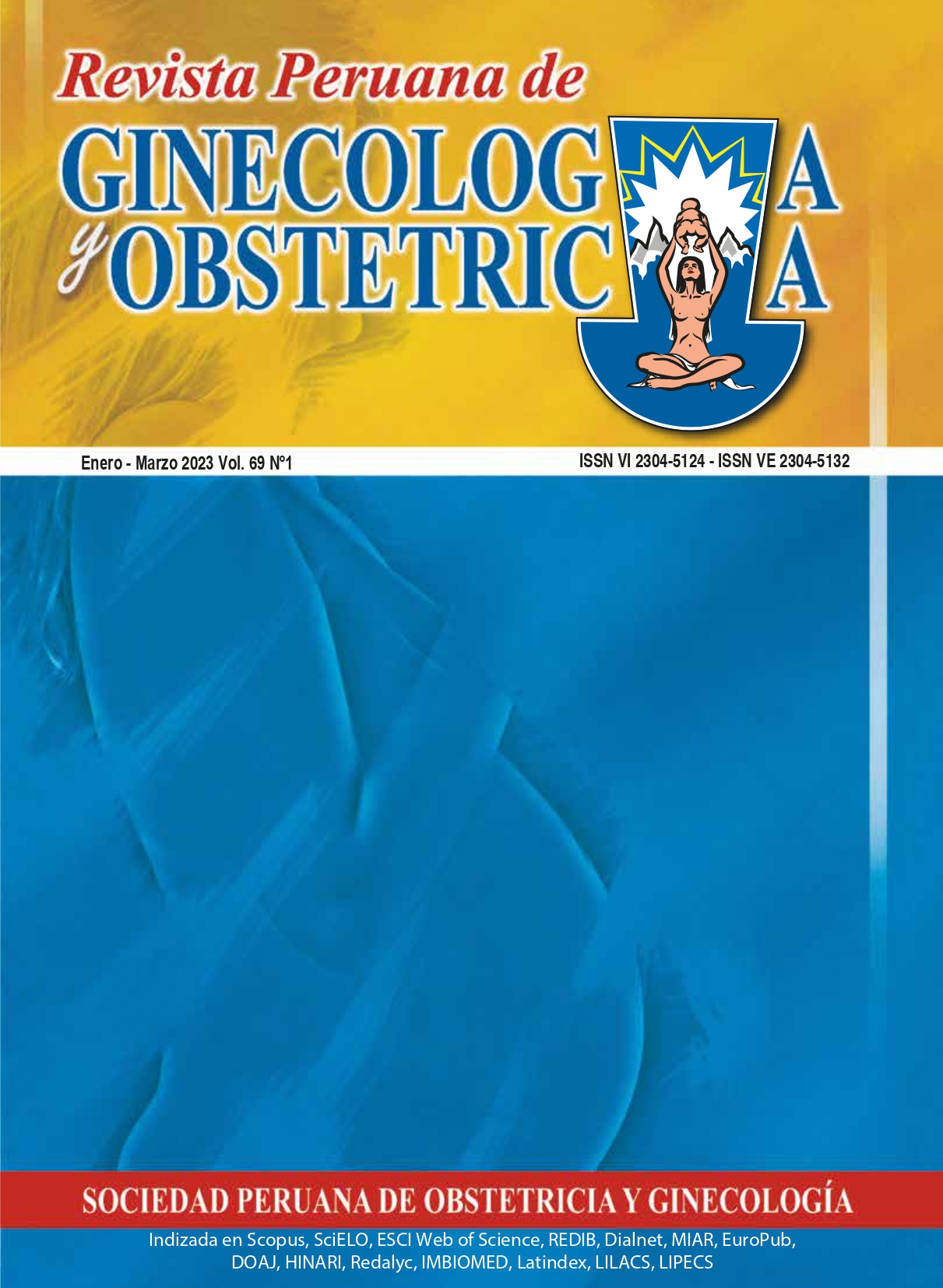Usefulness of fetal transverse cerebellar diameter measurement for gestational age prediction
DOI:
https://doi.org/10.31403/rpgo.v69i2474Keywords:
Cerebellum, transverse diameter, Fetus, biometry, Fetal developmentAbstract
Objective: To establish the usefulness of fetal cerebellar transverse diameter
measurement for the prediction of gestational age. Design: Prospective, longitudinal,
cohort study. Institution: Hospital Central "Dr. Urquinaona", Maracaibo, Venezuela.
Participants: Women with low-risk singleton pregnancies, between 14 and 40
weeks of gestation. Methods: Biparietal diameter, abdominal circumference, femur
length, and transverse diameter of the fetal cerebellum were measured during the
duration of pregnancy. Main outcome measures: Prediction of gestational age by
measurement of the transverse diameter of the cerebellum. Results: Data from 215
pregnant women were selected. A total of 3,858 total evaluations were performed,
with the lowest number of evaluations 131 at 18 weeks and the highest number 157
at 28 weeks. The transverse diameter of the cerebellum presented strong, positive,
and significant correlations with gestational age by date of last menstrual period
and ultrasound measurements (p < 0.001). The model of gestational age predicted
by the transverse diameter of the cerebellum reached a value of the coefficient of
determination of 0.908. The correlation between gestational age by date of last
menstrual period and that predicted by the model reached a value of r = 0.953 (p <
0.001). Conclusion: Measurement of the transverse diameter of the cerebellum is a
useful parameter for predicting gestational age in healthy pregnant women.
Downloads
Downloads
Published
How to Cite
Issue
Section
License
Copyright (c) 2023 Eduardo Reyna-Villasmil, Jorly Mejia-Montilla, Duly Torres-Cepeda, Nadia Reyna-Villasmil, Martha Rondón-Tapia, Carlos Briceño-Pérez

This work is licensed under a Creative Commons Attribution 4.0 International License.
Esta revista provee acceso libre inmediato a su contenido bajo el principio de que hacer disponible gratuitamente la investigación al publico, lo cual fomenta un mayor intercambio de conocimiento global.















